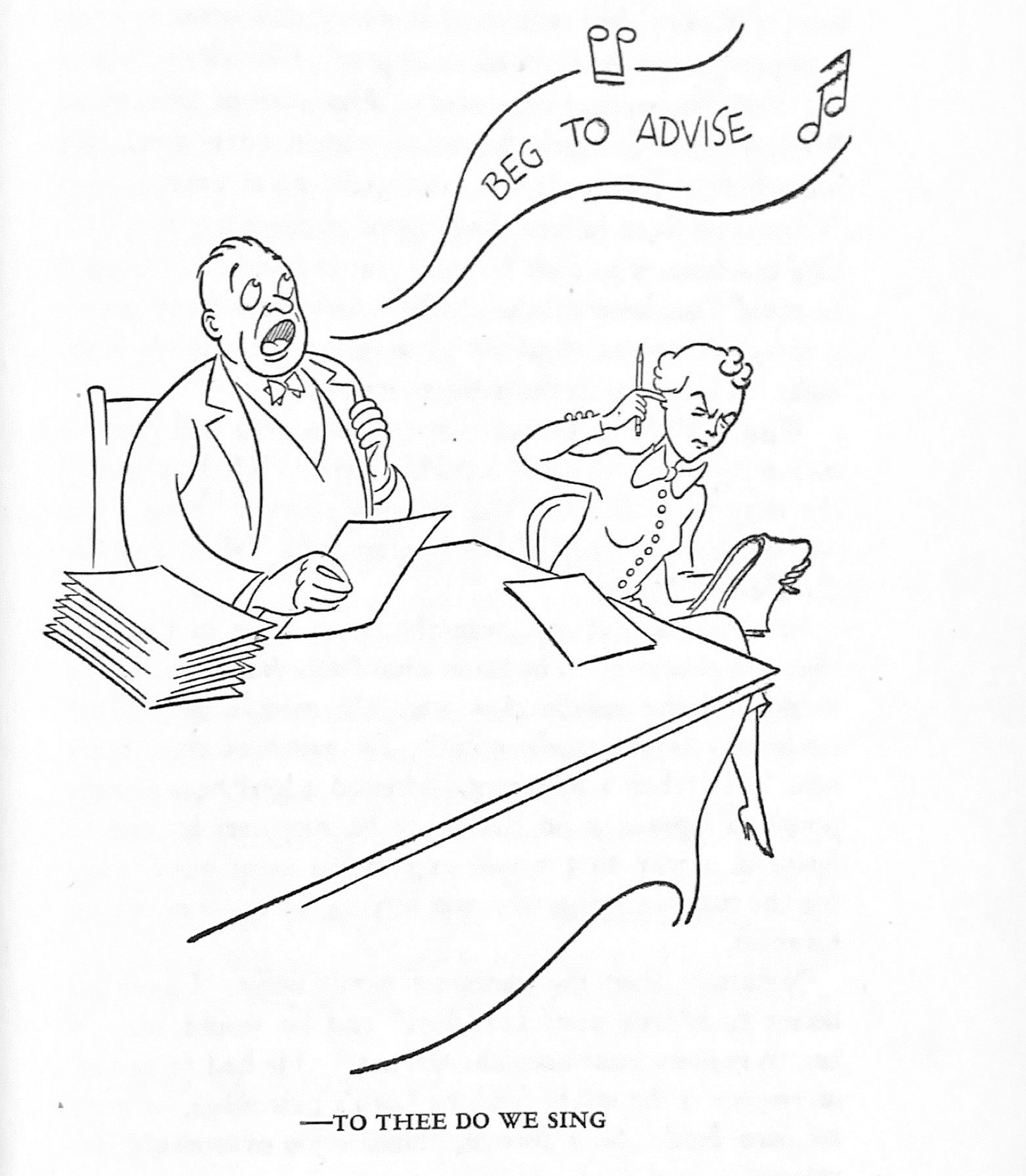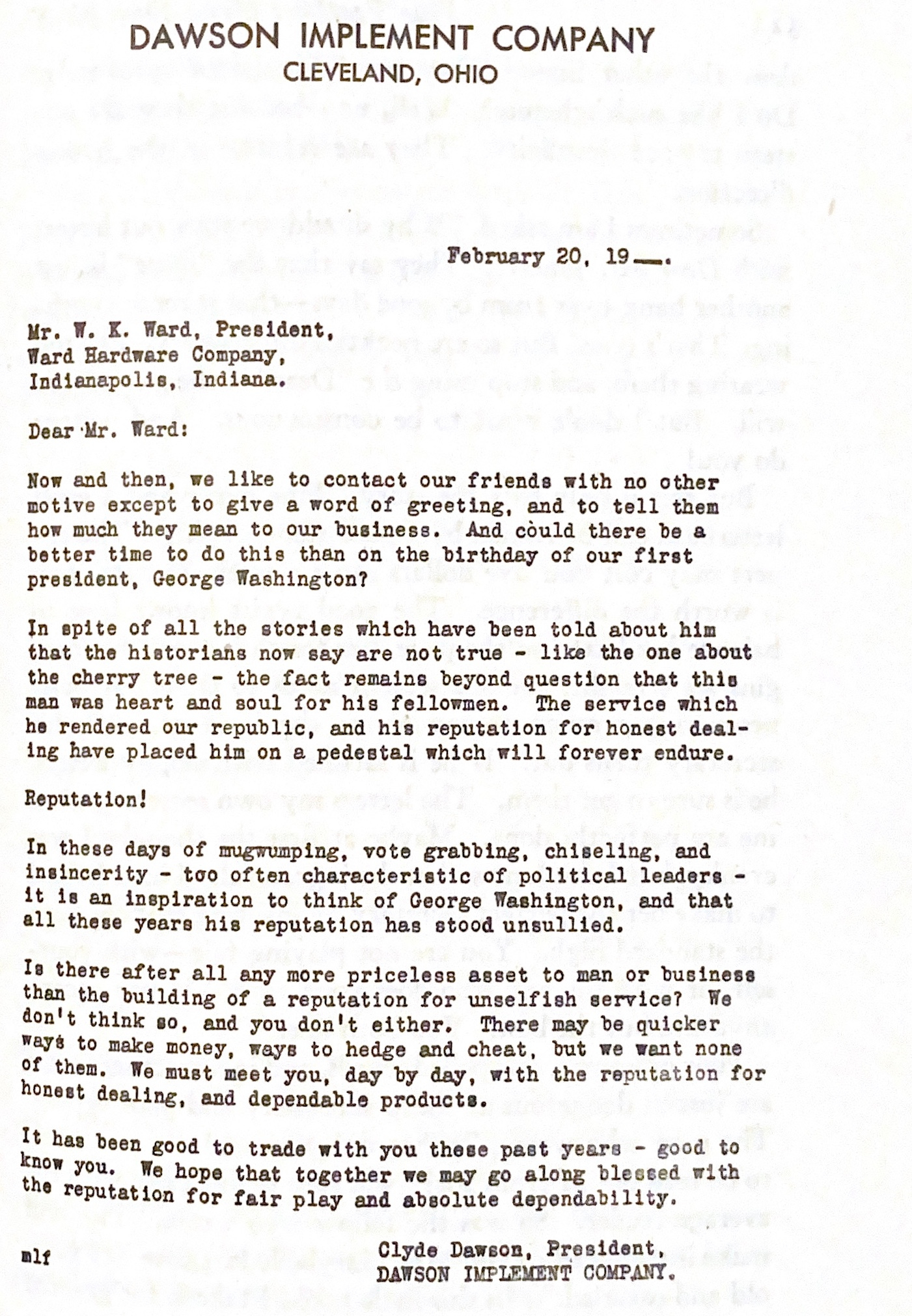Relax...Be Natural...Just Talk
Cy Frailey's Better Letter Clinics of the 1930s
As part of her training at Montgomery Ward my grandma attended a workshop led by L.E “Cy” Frailey about how to write sales letters. While she was primarily in charge of responding to customer complaint letters her responses were, of course, meant to increase sales.
Frailey was a business consultant who gave lectures all over the country from the 1930s through the early 1960s on how to write better business letters. Corporations and business associations would hire him to lead workshops based on his principles of writing better letters. His lectures were designed to get businessmen to “throw away the rubber stamps,” “shave off the whiskers,” and never be a “goozler.” The core principal was to in his words “relax…be natural…just talk.” He encouraged plain but accurate, relatable language.
The class my grandma took was based on one of several books he published on the subject called “Smooth Sailing Letters.” I was able to track down a copy of the 1938 edition which came out during her time at Wards.
As Frailey explains in the introduction to the book this is “a brand new, revised, enlarged edition” of the book.
The first Smooth Sailing Letters was really never written, not in the usual, formal way. It was dictated from some notes I had made for some talks previously given under the auspices of the St. Louis Chamber of Commerce. The folks who had heard those talks wanted copies - and so a book was born.1
He goes on to explain that it was done in his off hours as part of a sales contest. Like the responses my grandma would send to the letters received at Wards he dictated the contents of the book and his secretary typed it up. It was not intended for wide circulation.
But almost immediately, from here, there, and everywhere, requests for copies began to come in. How people found out there was such a book, I don’t know. Probably one man just told another.2
I wrote about Smooth Sailing previously in the post Smooth Sailing and Sheared Wit when I discovered one of the Dear Mister Ward letters had been included as an example.
Frailey begins by introducing the reader to a few core concepts of his philosophy of letter writing. He even includes a handy system for grading your letters.


The lessons are punctuated by amusing if dated illustrations by J. Alphonso Koenig.
Chapter 1 deals with “rubber stamps” which are commonly used stuffy and antiquated phrases.
Chapter 2 cautions against writing with “whiskers” or hiding the meaning of a letter behind ostentatious verbosity.
I once got a letter that began, “From your inquiry, your interest in the within is axiomatic.” I’ve been scratching my head ever since, wondering what the fellow meant by “axiomatic.” Evidently the word was a favorite pet of the writer - he couldn’t resist taking it out for a walk.3
He then digs into the mechanics of how to format, plan, and organize a letter. He also includes advice on specific details like what kind of paper to use and to always type your name at the bottom in case you have a “cock-eyed signature.”
He includes many examples of well written letters including one with a familiar salutation to someone of no relation.
Like some of the illustrations much of the language is dated to the point of being inappropriate by today’s standards. However the central conceit of writing directly and in a way that many people could understand is certainly relevant to the letters of Dear Mister Ward. He even suggests starting a collection of letters.
Study those letters. Try to see why they are good or why they are not. And some day, as your interest grows, you’ll be writing a book—a better book than this one. No fooling—you will.4
Well, thanks Cy. You’re too kind.
Learn about the Story Behind Dear Mister Ward in a new series of posts
The last chapter was the one that really stood out to me because it focuses on the manner in which you should write to your customer. Unfortunately I only have one of the responses that my grandma (probably) wrote but it definitely follows his advice to write with an “educated heart.”
In addition to Smooth Sailing he published several other books and contributed to other publications and periodicals. More interestingly he released at least two audio recordings based on his “Better Letter Clinics.”
I stumbled upon the first one on Discogs.com, a website I use often as a record collector. Not wanting to pay the listed price of $123 I checked eBay and found one much cheaper. It had been published as part of a series of records called the “Businessmen’s Record Club.”
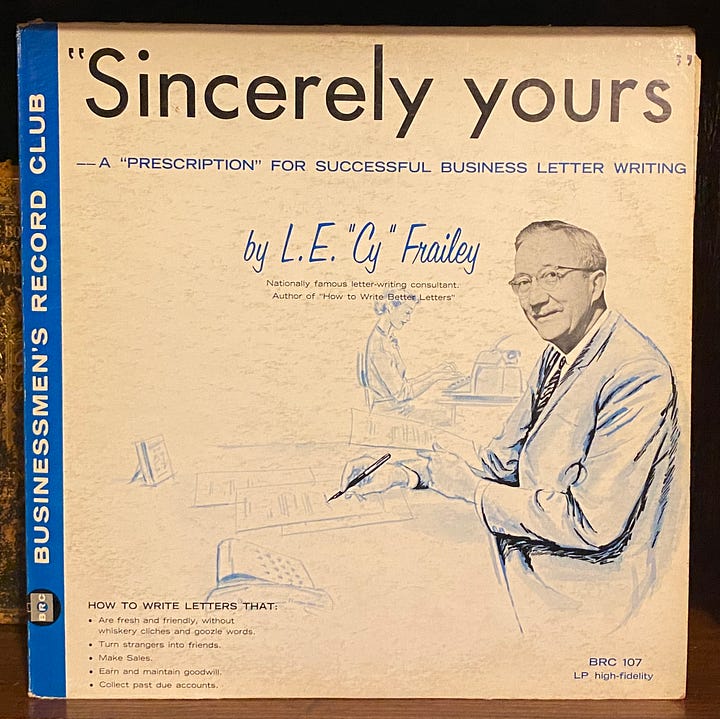
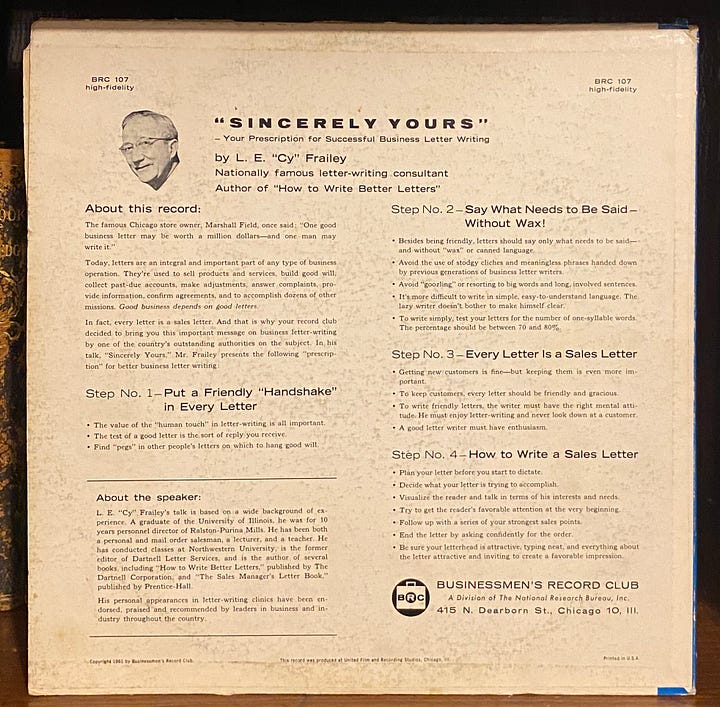
There was also another record credited to Frailey listed on Discogs.
This one was a set of six 16” vinyl records and accompanying film strips. The records played on an oversized turntable with a built in projector which held the film strips.
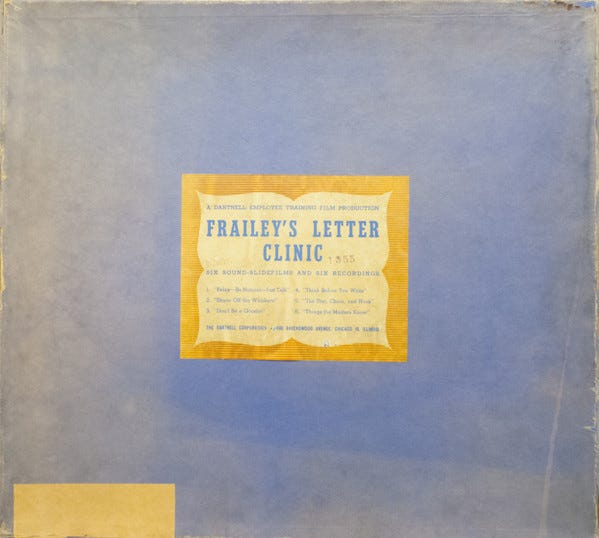
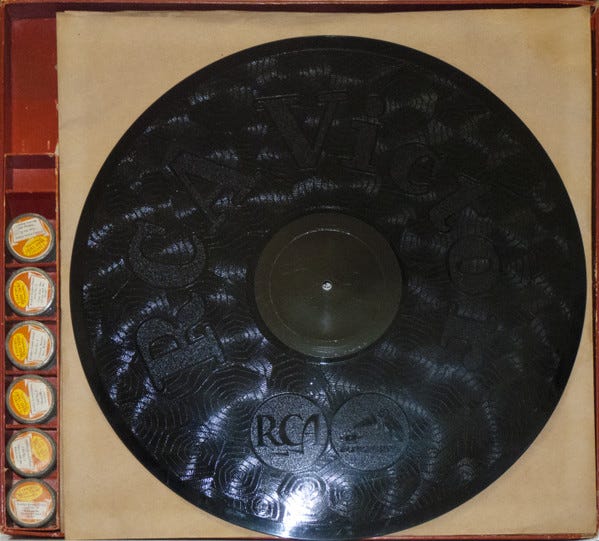
Unfortunately I haven’t yet been able to find a good video demonstrating the process. When I was growing up in the 80s we still used a similar system in class but instead of vinyl records the audio was on cassette tapes. I can still hear the beep as the teacher moved from slide to slide.
The item was not listed for sale but I took a chance and emailed the user who had added it to the database. He was kind enough to not only record the audio but also scan the film strips. Both the record and the film strips were in pretty rough shape. I used my very basic audio editing software to minimize the scratchiness of the record and cleaned up the film strip, cutting them into individual frames. Then I cut the images and the audio together into a video. I only did the first record as it was the most applicable to Dear Mister Ward.
The images are definitely of their time. Many of them are shot with the sharply contrasted lighting of a film noir even approaching German Expressionist cinema. Cy’s voice is also utterly unique. After hearing it on the record I continue to hear it whenever I read his writing.
The video is about 15 minutes long but I think it’s worth watching. Be warned that it is a product of its time so there are some cringeworthy moments.
Thanks to “Nervous” Neal Smith for providing the images and audio. Check out his website for his saxophone recordings or to take some lessons.
L.E. Frailey, Smooth Sailing Letters. (New York: Prentice Hall, 1938), v.
Frailey, vi.
Frailey, 13-14
Frailey, 72





